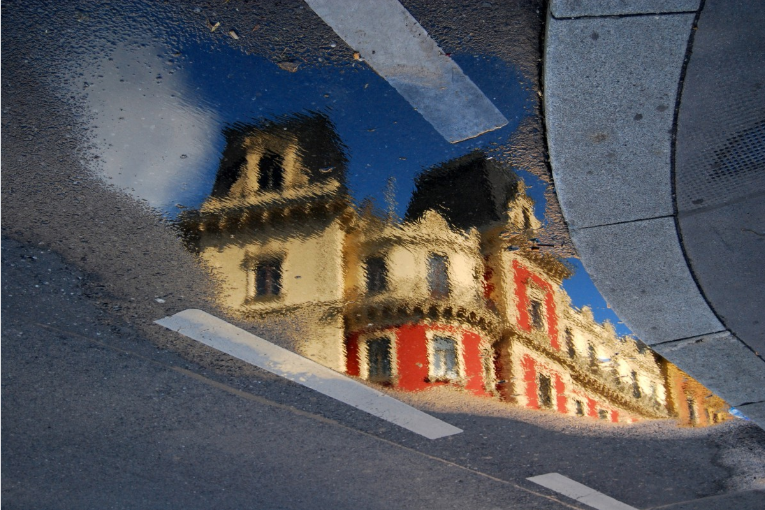By most standards, Austria’s democratic credentials are sufficient to warrant a position at the top of rankings. Regardless of whether you take Transparency International’s Corruption Perception Index (CPI), where Austria ranks #16 out of 176 countries, or Freedom House’s landmark report on Freedom in the World, Austria fares well.
A Peak Beneath the Shiny Surface
Yet, these rankings only show the surface of the real situation. Once you remove the make-up, the distinct features of clear democratic deficits become painfully visible.
As Dutch journalist Caroline de Gruyter once wrote in an excellent article about Austria:
The eternal coalition [between conservatives and social democrats, who ruled Austria almost without interruption since World War II] makes Austria a rather corrupt country in many senses. Austrian syndicates never go on strike – but they have one of the most generous social welfare systems in Europe. Corruption scandals involving (former) politicians erupt regularly, leading to court cases and convictions. The cleanup of banks in Austria is slower than in other countries because banks are full of political appointees who enjoy protection. In Austria, corruption doesn’t involve paying bribes for drivers’ licenses or birth certificates. But for certain jobs, it helps to be a member of a particular political party. The Western-led Organization for Economic Cooperation and Development regularly urges Austria to improve transparency.1
As of 2017, it is still true that you only stand a very, very small chance of becoming headmaster of a high school if you are not affiliated with either the conservatives or the social democrats. And yes, while we do not pay bribes to the police, there is a lot of high level corruption with indictments and court sentences against former ministers (former Finance Minister Karl-Heinz Grasser and former Minister of the Interior Ernst Strasser being the most prominent examples).
Political protection for those with powerful friends is still rampant. A recent boat accident involving a well-connected media manager revealed that the Minister of the Interior still uses his direct influence to restrict the investigations of the police.
Austria’s democratic deficits are most startling if you compare the Austrian situation with the neighboring Germany or Switzerland.
In Germany, a politician who is accused of wrongdoing will step down due to public pressure, in hopes of getting a second chance after a couple of years. Former German Minister of the Economy Karl-Theodor zu Guttenberg is a prominent example. While he resigned following a plagiarism scandal linked to his PhD, his conservative Austrian colleague, Johannes Hahn, declined to do anything of the like, despite being accused of the same offence with similar evidence.
Johannes Hahn still firmly hold his position of the Austrian Commissioner in Brussels. In Austria, this phenomenon is referred to as “aussitzen”. Literally, you try to maintain your position for as long as can, until public outcry eventually subsides. This is seen as a sign of strength; the population accepts this kind of behavior as it has never changed since the Habsburg era.
The Media, at the Heart of the Dark Side
Out of all democratic deficits in Austria, one is looming much larger than all the others: the media. Austria’s biggest newspaper, Kronen Zeitung, reaches almost 40% of the Austrian electorate. In a fine example of its political clout, it supported the independent list of a hitherto almost unknown MEP’s for the European Parliament elections of 2009.
The candidate, Hans-Peter Martin, gained 18% of the Austrian votes. Approximately 70% of his voters were reading Kronen Zeitung, and close to 30% of the newspaper readers voted for him.
Austrian politicians are obviously very aware of this, and social democrats went as far as announcing substantial policy changes in a letter to the editor of the newspaper instead of consulting their party members or boards.
One might say that this is nothing out of the ordinary for a powerful media house. Possibly so, if one does not mention the advertising business.
On a per capita basis, Austria has second highest level of public subsidies for political parties in the whole world. It is about several hundred million euros, which is a lot of money for a small country with 8 million inhabitants. The Austrian government spends as much as the German government for the country 10 times of its size2 on newspaper advertisements.
In the run-up to the regional elections for the state (and the city of Vienna) in 2015, political parties and public bodies controlled by their respective parties spent over EUR 15 million on advertisements in daily newspapers.3 In 70 days only.
The lion’s share of these advertisements went to three tabloids (Kronen Zeitung, Oesterreich, and Heute), with over EUR 3 million each.
Heute is a free newspaper that would be unable to survive without political ads. In turn, their reporting usually favors those who finance it through their advertisements. Ironically, Heute is managed by Eva Dichand, the wife of the editor of Kronen Zeitung, Christoph Dichand.
While dozens of journalists have tried to establish some evidence to prove this strategy of “buying the media”, no one was able to prove it yet. However, no one within the political circles of Vienna would doubt the links between some of the political parties and the media.
It is more than just currying favors, it is a symbiosis. One would not be able to survive without the other.
The Way Forward
A healthy and independent media scene cannot and should not be mandated politically. It can only come through initiatives from the media sector.
While the Swiss newspaper Neue Zuercher Zeitung has made an ultimately unsuccessful foray into the Austrian media scene, there is a new project coming up: Quo Vadis Veritas, an initiative financed by an Austrian billionaire and owner of Red Bull, Dietrich Mateschitz. Time will tell.
The article was originally published in “European Atlas of Democratic Deficit” (2018), European Liberal Forum & Projekt: Polska
1 http://carnegieeurope.eu/2014/11/05/austrian-acrobatics-in-europe-pub-57137
2 https://www.dossier.at/dossiers/inserate/neunmal-teurer-informiert



